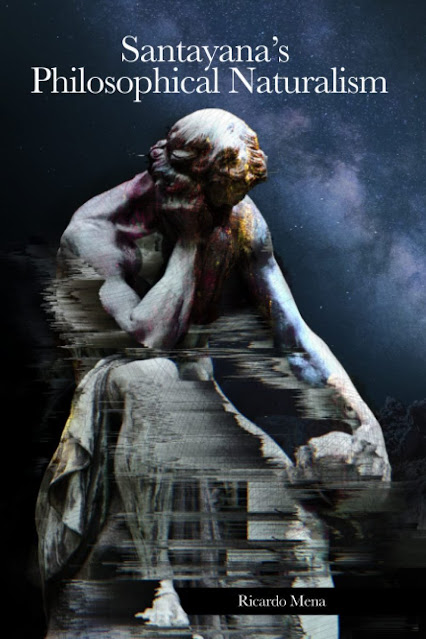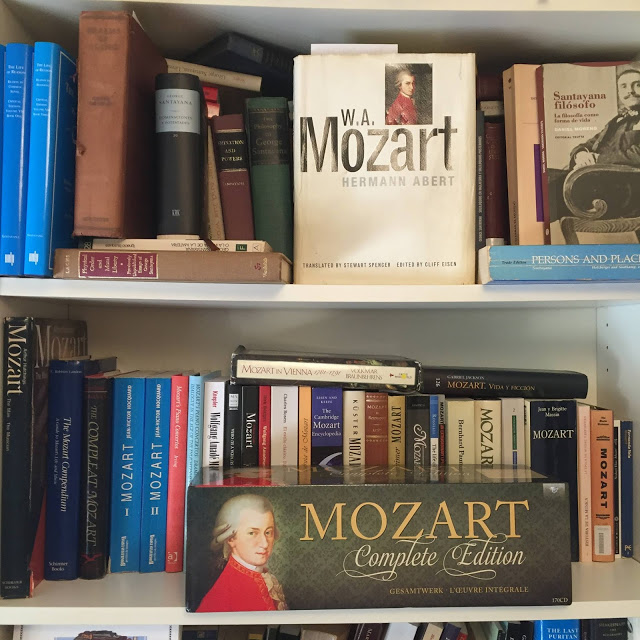SPN §4.
Key Ideas
—The Sense of Beauty, impact and boldness (Paragraph 19.
—Sexual selection (Paragraph 2).
—An anecdote about freedom to change (Paragraph 3).
This thought reads:
§4 Of late we have even learned that the forms of
many animals are due to the survival by sexual selection
of the colours and forms most attractive to the
eye. There must therefore be in our nature a very radical
and wide-spread tendency to observe beauty,
and to value it.
This thought shows that Santayana have read his Darwin and William James’ The Principles of Psychology. By the way (and this is one of the purposes of this project), I did not remark the influence William James’ psychology had on Santayana. It was very deep. So, at the end of §4 I added this footnote:
The sexual selection idea presented by Darwin in The Descent
of Man and Selection in Relation to Sex (1871) was considered
foolish while natural selection was taken seriously
since 1859. Sexual selection was ignored because it gave too
much power to female’s selection of male’s attributes and behaviour
(but males also select females for their beauty and behaviour;
sexual selection is bilateral). Today sexual selection
has gained ground and stands side by side with natural selection.
Cf. Geoffrey Miller, The Mating Mind. Santayana did not
ignore its importance; cf. §24.
1. This thought is the first selection of his first philosophical work, The Sense of Beauty (1896). Its impact in the USA was deep and the work is still studied in universities. It is the only work of Santayana to be studied that way, academically. The work is important because it went against the pervasive influence of Hegelianism (charlatanism) and Christianism at Harvard, which were strong through the 1890s (the most dear decade for Santayana in his life, so he said himself). This influence of Hegelianism was strong in Boston because of the Trascendentalist movement of Emerson, Thoreau et al. which was born there in Boston, the most European part of the USA.
So that, to say the beauty was a natural, animal process that had nothing to do with the spirit, the eternal heaven or the immortal soul, one needed to be bold. And Santayana was bold, very bold in his first academic work. I see this work as an anticipation of the Evolutionary Psychology revolution of the 1990s onwards. What Santayana does here in this work is to naturalise beauty, as Spinoza naturalised the interpretation of the Bible in 1670. The next selections will show this clearly.
2. Sexual selection was the idea Darwin had to had to understand scientifically why the peacock tail exists, if all animals struggle for existence, struggle to survive. If the game is about survival, why all that waste of colours and plumage? The tail is clearly a handicap (cf. Zahavi’s Handicap Principle). Wallace had co-discovered the natural selection idea years later than Darwin, but by himself alone, independently. When it got to beauty and the mind, Wallace had some peculiar, spiritualistic ideas about this natural process. and did not share Darwin’s sexual selection idea: that females select the attributes they like of the males, and the males do the same on females. So sexual selection is no about survival, but about showing off, about virtue signaling, about marketing, about lying, art, imagination, singing well if you are a bird, speaking with ample vocabulary if you are a Homo sapiens in Berlin in the nineteenth century. All counts. Everything is being selected, studied. Nature never rests. Social media is another evidence of the eternal tracking Homo sapiens do to each other at all times.
3. I remember now that I had a conversation with a lawyer and we were discussing some issue about a person. I remember that eventually I said that that person we were discussing about was an Homo sapiens and had such and such mental adaptations. The lawyer answered me (the conversation was via WhatsApp) that I was being racist for saying that a person was a brute, a beast, an Homo sapiens. My reply was this: We are all Homo sapiens. It is not an insult, but a scientific name for our species. My comment was egalitarian: he was not so much to blame as their evolved mental adaptations (it could have been about jealousy or domestic violence). When one ignores science, one jumps into Wokism or Social Justice Theory like a hot wire. We can change our behaviour if we know why we have that behaviour, why was selected by nature. That does not mean that changing our behaviour is going to be easy. It only means that the change is easier once we know. Knowing gives us more freedom to change.
The project is converted into a PDF for my academia.edu profile: https://independent.academia.edu/RichardMcCaves.



Comments
Post a Comment